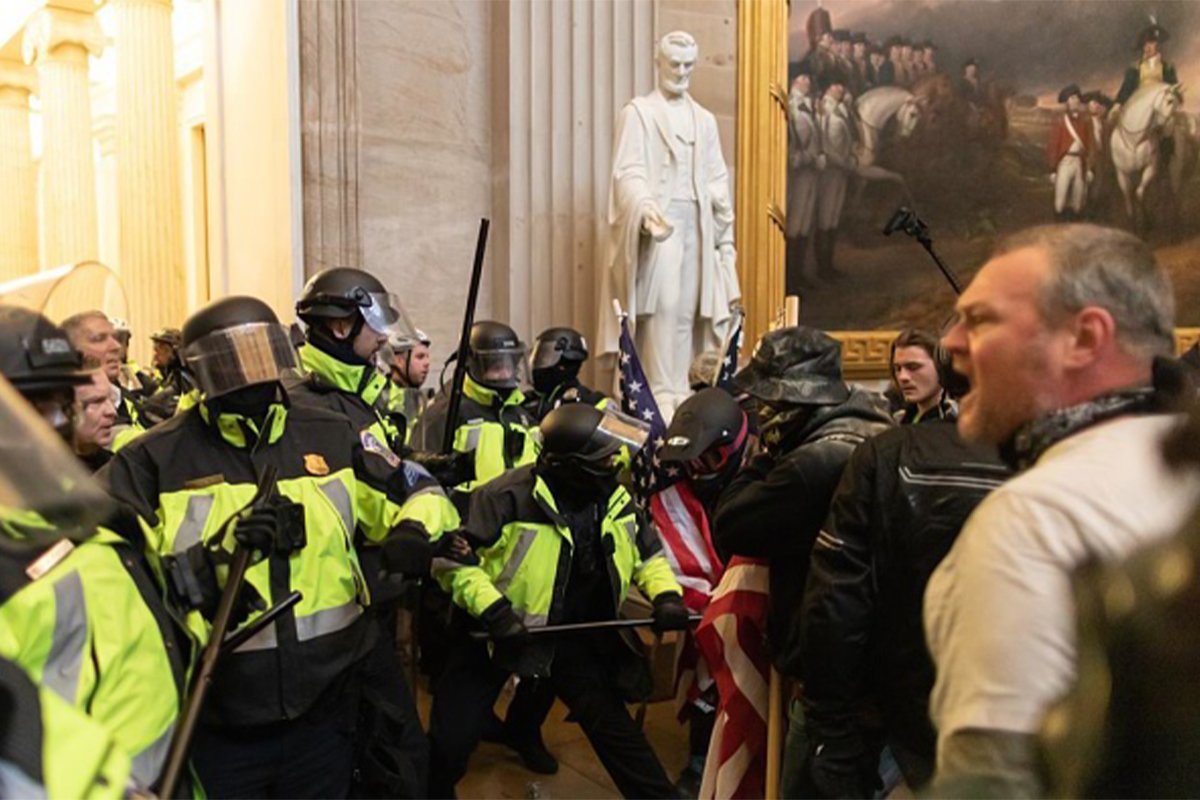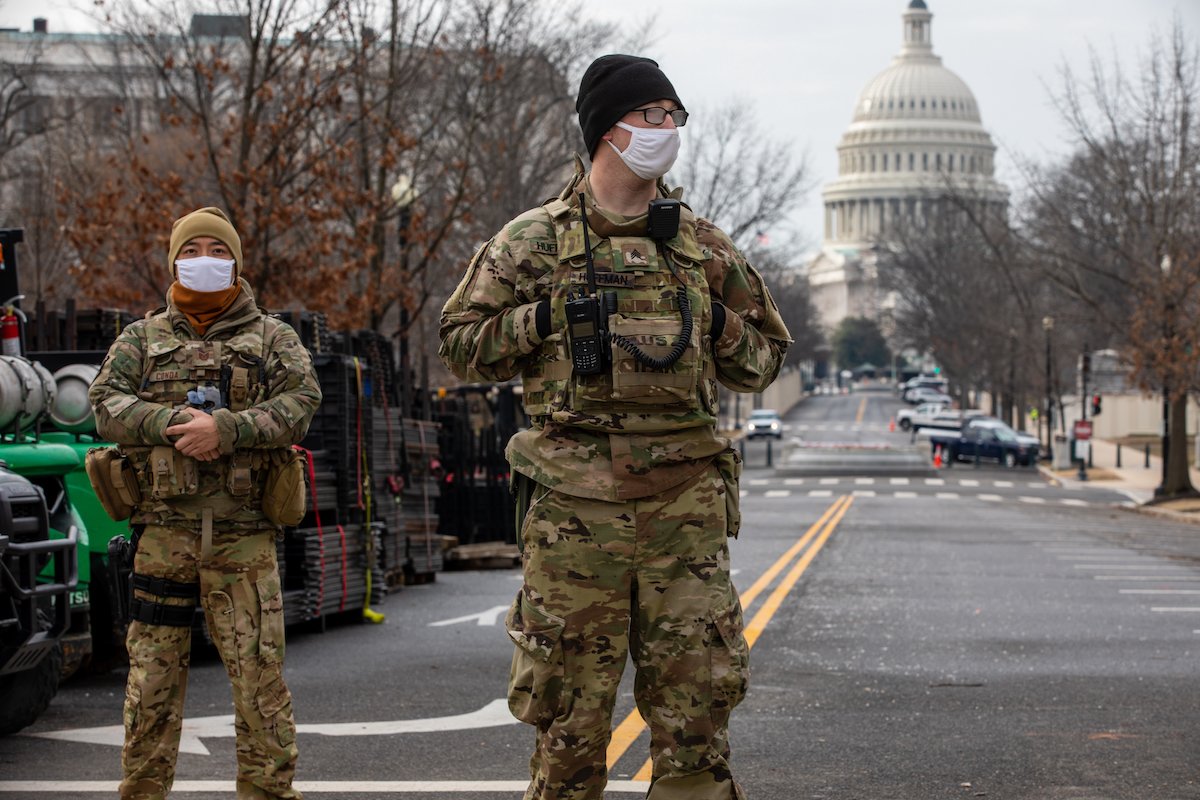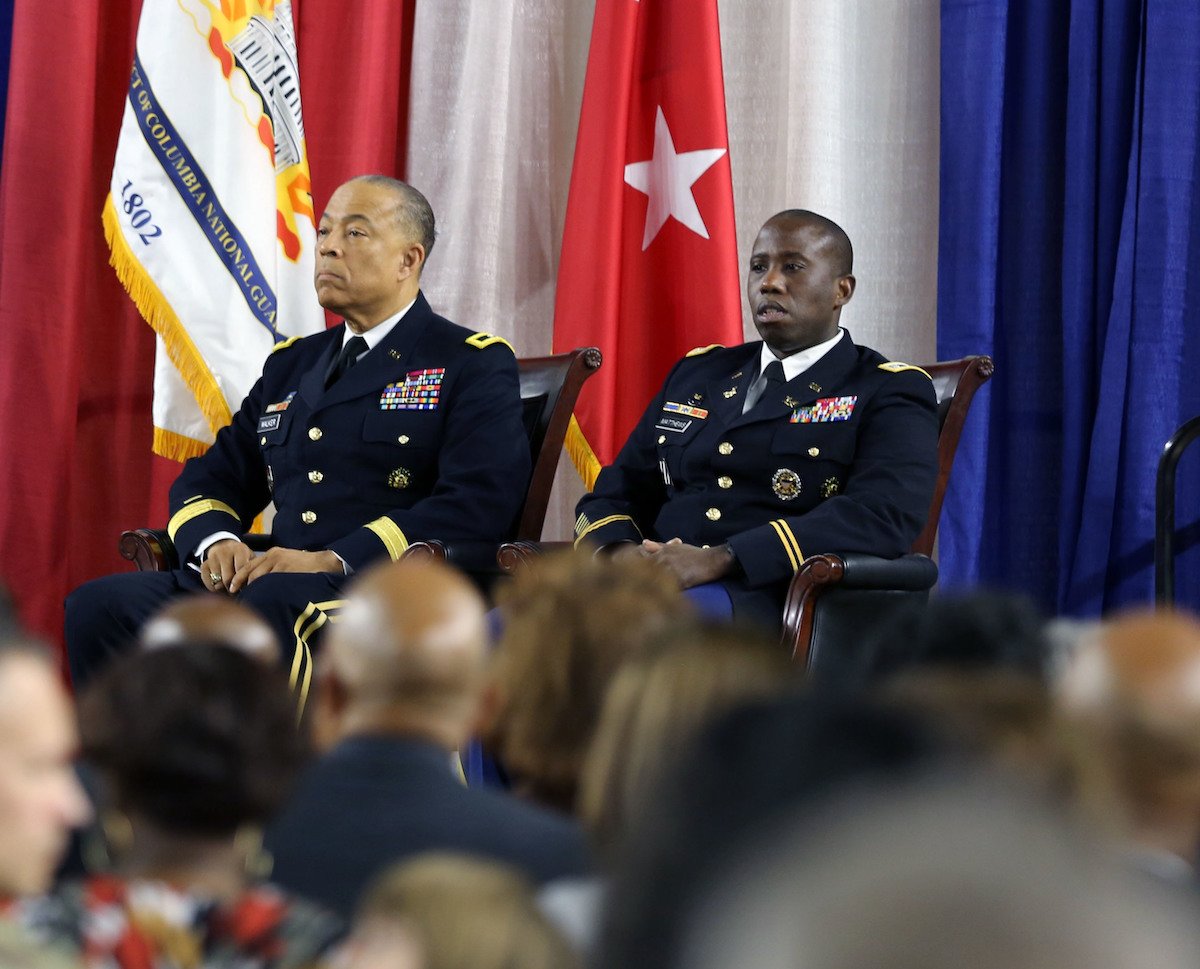‘Fundamentally Flawed’: DC Guard Official Decries Pentagon’s Jan. 6 Investigation

Police confront rioters who breached security and entered the Capitol in Washington, DC, Jan. 6, 2021. Photo by Mostafa Bassim/Anadolu Agency, courtesy of Getty Images.
A former senior legal adviser in the District of Columbia National Guard, or DCNG, called the Pentagon’s official report on the Jan. 6 riots a “fundamentally flawed” investigation, loaded with inaccuracies and a misrepresentation of the ability and willingness of the DC Guard to respond to the Capitol.
Far from being unprepared and undertrained, said Col. Earl G. Matthews, the DCNG — which calls itself the “Capital Guardians” — was ready to respond but was never given permission.
In a 36-page memo, Matthews, who served as the senior legal adviser to the head of the DC Guard, attacked the recent report by the Pentagon’s Inspector General’s office, which largely cleared senior military leaders of fault on Jan. 6. Matthews, though, writes that senior generals at the Pentagon were asleep at the switch as the riot worsened and then lied to both investigators and Congress about it.
The memo, originally published by Politico, calls for an independent review of the Inspector General’s findings and for the timeline produced by the Army to be “scrubbed for accuracy.” Matthews accused Lt. Gens. Walter Piatt and Charles Flynn, director of Army staff and the Army’s deputy chief of staff for operations, respectively, of lying to Congress.
“Piatt and Flynn consistently and repeatedly misrepresented, understated, or misled the House Oversight Committee and the DoDIG regarding the capability, readiness and motivation of the DCNG to respond on the afternoon of 6 January,” the memo reads. “They falsely claimed that the DCNG did not have, the training and resources to move quickly, to pivot from traffic control to civil disturbance operations. This was untrue.”
Matthews said that the DCNG was not just fully prepared and equipped to respond to the Capitol, but was desperate to.

“To a person, every leader in the DCNG wanted to get to Capitol Hill with deliberate speed when the Capitol security perimeter was breached,” Matthews writes. “Their attitude was ‘This is What We Do.’ ‘Send Me.’ In fact, responding to civil unrest within the confines of the District of Columbia was a foundational mission, a statutory mission of the D.C. National Guard, given it by the Congress.”
He notes that the Capitol Dome is on every DC Guardsman’s uniform and that the Guard calls itself the “Capital Guardians.”
Titled “The Harder Right: An Analysis of a Recent DoD Inspector General Investigation and Other Matters,” the memo captures the recollections of now-retired Maj. Gen. William J. Walker, commanding general of the DC National Guard during the riots, and Matthews, who served as Walker’s staff judge advocate.
Matthews says his memo was pieced together with the help of current and former DC National Guard soldiers and airmen who were there that day. In contrast, Matthews writes, the Pentagon IG “relied heavily on close associates of [Piatt]” for its investigation and failed to interview other National Guard personnel with “highly relevant information.”
In one instance, Matthews cites what he calls a “fictious phone call” that the Inspector General reported. The IG reported that former Secretary of the Army Ryan McCarthy called Walker at approximately 3:05 p.m. to discuss how many soldiers were available to replace members of the Metropolitan Police Department so they could be reallocated to the Capitol.
However, according to Matthews, that call never happened, casting doubt on the Pentagon’s narrative of how seriously officials there sought help from the DCNG.

“Walker at that time was in the midst of a video teleconference with [Piatt], [Flynn] and senior Army leaders, and DCNG key leaders, discussing events at the Capitol and potential DCNG responses thereto. MG Walker would have of course prioritized a call from the Secretary of the Army, his direct and immediate superior, if it had come, but it did not,” Matthews writes. “The [account], posited as a fact by the DoDIG, apparently does not rely on the firsthand statements of Secretary McCarthy or MG Walker, but the recollection of an anonymous witness.”
The DODIG report can be read in full here.
Matthews even takes issue with the name of the report, “Review of the DOD’s Role, Responsibilities, and Actions to Prepare for and Respond to the Protest and Its Aftermath at the U.S. Capitol Campus on January 6, 2021.”
“What occurred at the Capitol on 6 January was no mere ‘protest,’ it was a riot and an assault on our democracy which occurred at the very seat of government,” Matthews writes. “To not call it what it was is to minimize the importance and gravity of what occurred.”
Read Next:

Dustin Jones is a former senior staff writer for Coffee or Die Magazine covering military and intelligence news. Jones served four years in the Marine Corps with tours to Iraq and Afghanistan. He studied journalism at the University of Colorado and Columbia University. He has worked as a reporter in Southwest Montana and at NPR. A New Hampshire native, Dustin currently resides in Southern California.
BRCC and Bad Moon Print Press team up for an exclusive, limited-edition T-shirt design!
BRCC partners with Team Room Design for an exclusive T-shirt release!
Thirty Seconds Out has partnered with BRCC for an exclusive shirt design invoking the God of Winter.
Lucas O'Hara of Grizzly Forge has teamed up with BRCC for a badass, exclusive Shirt Club T-shirt design featuring his most popular knife and tiomahawk.
Coffee or Die sits down with one of the graphic designers behind Black Rifle Coffee's signature look and vibe.
Biden will award the Medal of Honor to a Vietnam War Army helicopter pilot who risked his life to save a reconnaissance team from almost certain death.
Ever wonder how much Jack Mandaville would f*ck sh*t up if he went back in time? The American Revolution didn't even see him coming.
A nearly 200-year-old West Point time capsule that at first appeared to yield little more than dust contains hidden treasure, the US Military Academy said.












